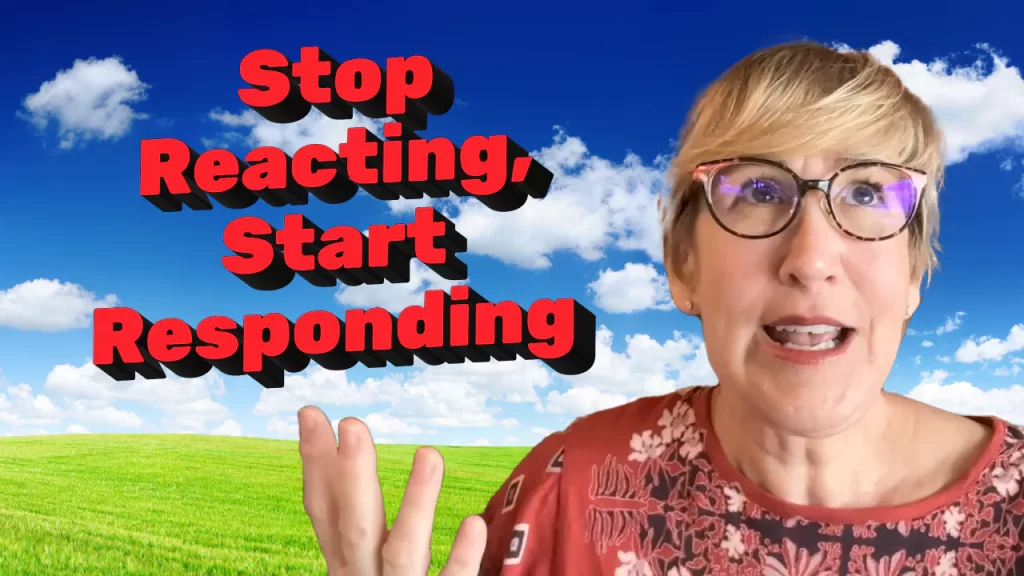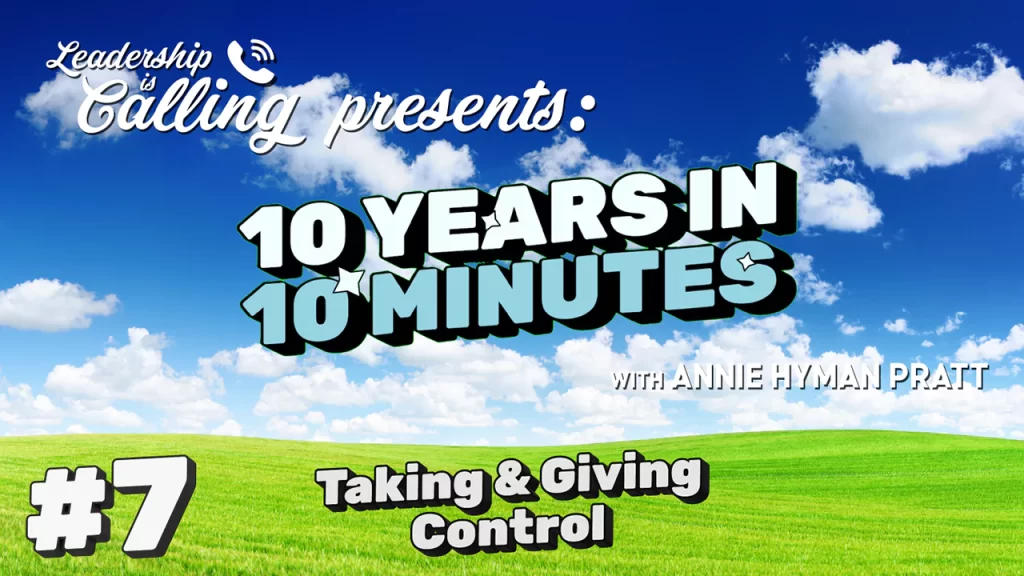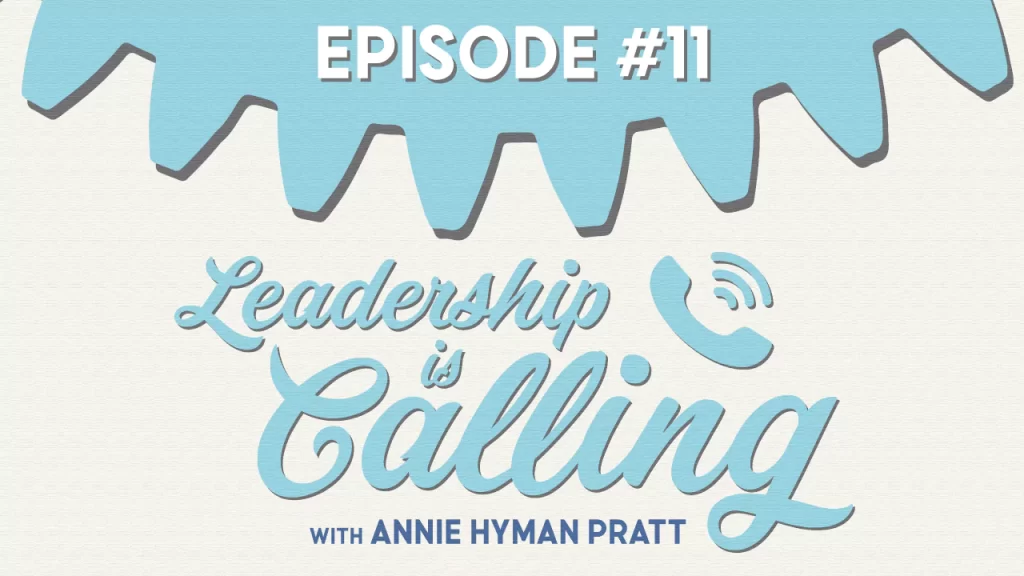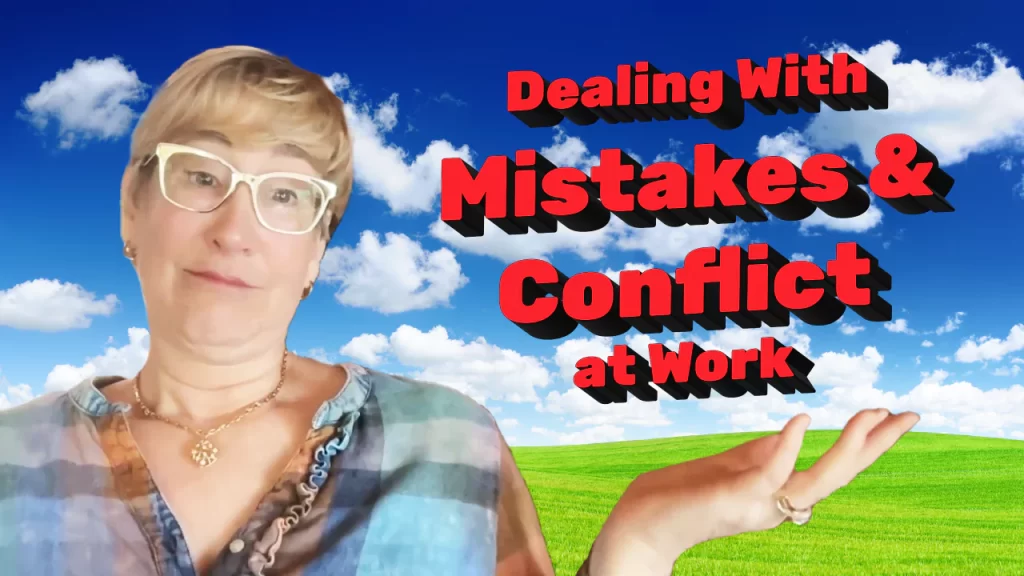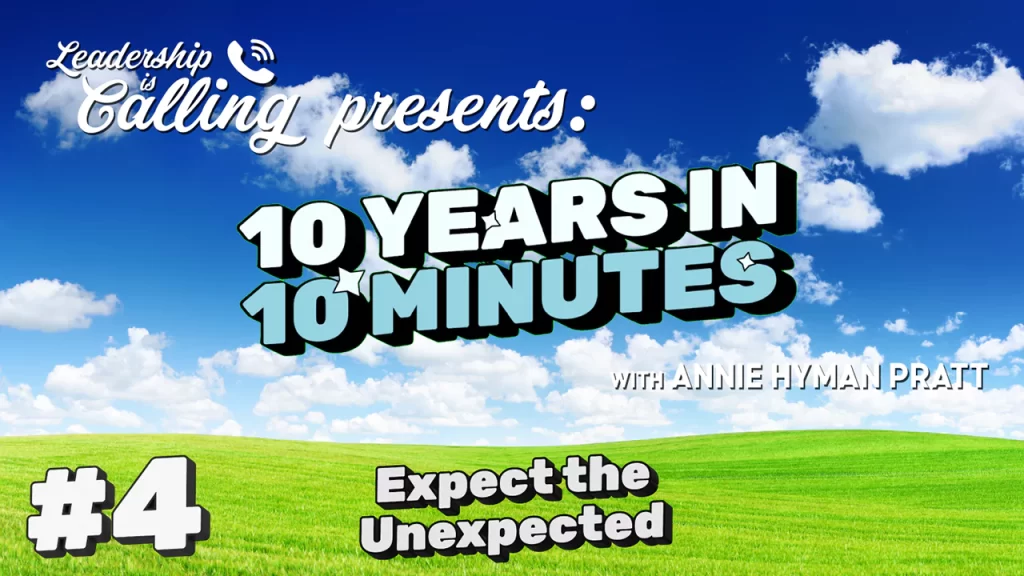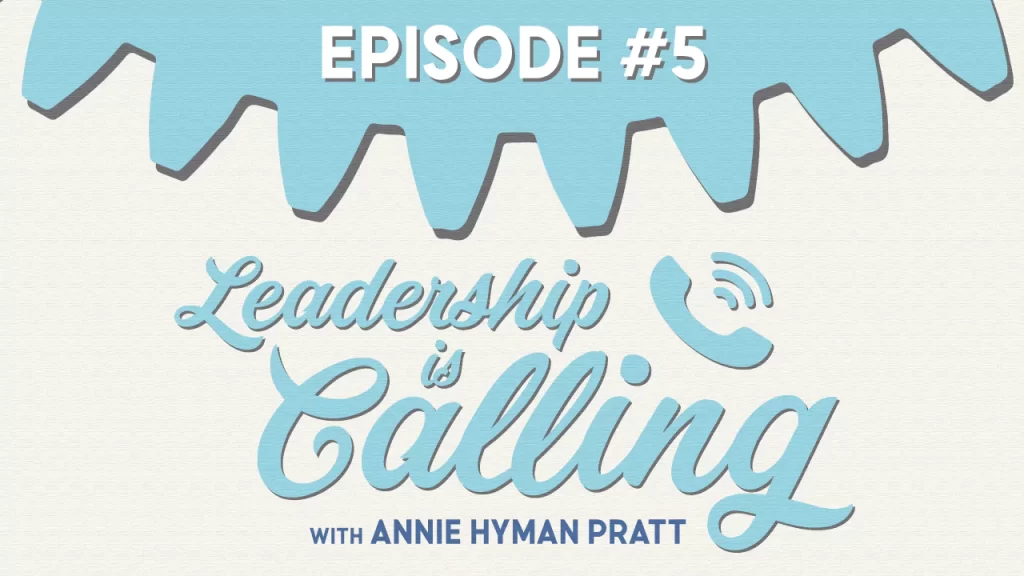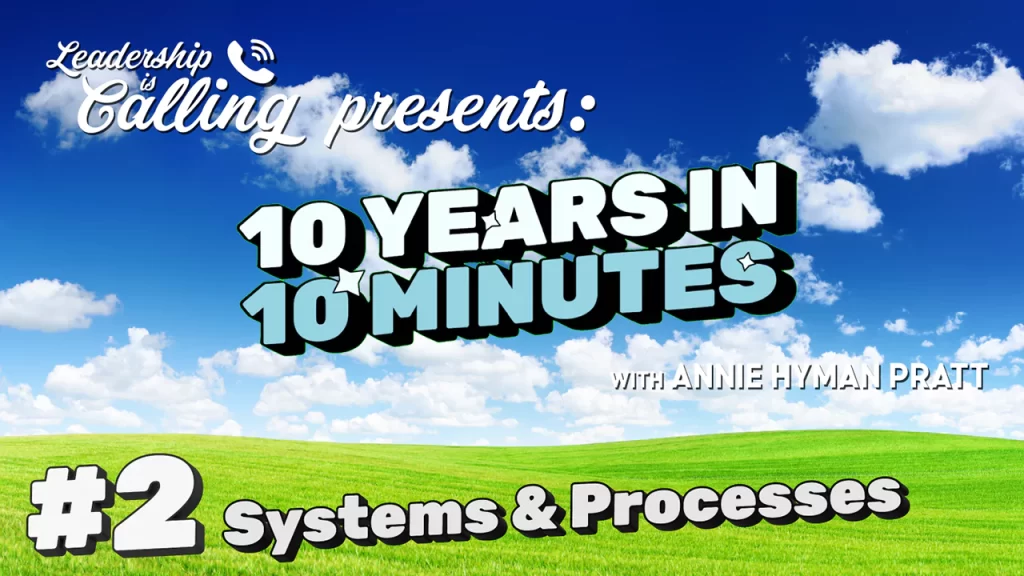Episode #50: How CEOs Perceive Their Teams: The Impact of Your Mindset on Building Success
Leadership is Calling Episode #50
Annie Hyman Pratt
- Description
- Transcript
How CEOs Perceive Their Teams: The Impact of Your Mindset on Building Success
Do you ever feel like you’re constantly evaluating your team and finding them lacking? You’re not alone! Many leaders fall into the trap of negativity bias, constantly looking for what’s wrong instead of what’s right, but this mindset can actually push away your best talent and stifle your team’s potential.
In this video, Annie Hyman Pratt, leadership expert and former skeptic-turned-believer, shares her powerful journey of transformation. Annie explains how leaders often mentally focus on negatives about their teams. She describes how this critical perception affects leadership ability and morale. She advises viewing teams positively instead to build strong, loyal teams.
Annie Shares:
– The surprising truth about how your perception shapes your team’s reality
– Why constantly judging your team holds them back (and you too)
– Practical steps to cultivate a positive mindset and build trust
– How to unleash the full potential of your people and create a thriving team
Ready to stop micromanaging and start mentoring? Watch now and discover the leadership secret that will transform your team and your business!
Key Points
- Leaders often focus on negatives instead of positives with their teams
- How you perceive your team affects how you lead them
- You must view your team positively to lead them well
- Your perceptions become reality – change your mindset
Related Resources
Leadership Skills: The People Part
Leadership Development Articles: Become Aware of Your Own Self-Protection | The Generosity of Leadership
Downloadable Leadership Tool: The Secret Recipe to Reverse Burnout and build Emotional Endurance for You and Your Team

Auto-Generated Transcript – unedited version
How CEOs Perceive Their Teams: The Impact of Your Mindset on Building Success
Hello Everyone. It’s Annie here. And today I want to talk about a difficult topic. It’s about how CEOs and leaders perceive their teams, perceive others, how they’re in relationship with their teams.
Normally when we’re talking about teamwork and leadership, we’re really talking about how people behave with their teams. Right? And ultimately, that is the most important part. The thing is, is that how we think, how we’re thinking about others specifically, kind of like the regard that we hold them in – meaning are we holding them in, generally perceiving them in a generally positive regard, or are we perceiving them in a generally negative regard?
So for a lot of CEOs and leaders, they are highly analytical and they tend to be kind of constantly evaluating people for what’s not going right. What has it worked out? What, you know, kind of like our human wiring is to constantly look for the threats and others. Like what? You know, what do I need to be on guard about? And when we are working with people and we get a little bit of a history and maybe they’ve made some mistakes and maybe they’ve said a few things that didn’t go well, maybe they you know, maybe they’re not as skilled as you thought they were going to be. There’s all kinds of things that cannot go exactly as planned. Most things don’t go exactly as planned. Okay?
So when that’s happening, it can easily sort of turn into a kind of a running list in people’s heads of why this person is not all that great. And, you know, and kind of overall why the team’s not all that great. These leaders can often list all the negatives, you know, much easier than the positives. It’s easy to remember mistakes. It’s not always easy to, you know, kind of remember everything that went well. By the way, I used to be one of these leaders who really, you know, felt that others could let me down often, that maybe they weren’t working hard enough, that I you know, that I wasn’t happy with the mistakes that they did make. I was, you know, thinking that they represented themselves as being more skilled than they actually turned out to be. I had all these thoughts running through that were generally kind of negative.
And then with that, here’s the thing with me perceiving them that way, then I would try to use good leadership and interact with them in a way that didn’t accidentally let, you know, slip out all that criticism or all that negative regard for them. So when I’m in that space, it’s like I’m having to gate keep myself. I’m having to work really hard to interact well so that we can still work together. Okay? But I’m fighting this internal war of how I perceive them and how I want to be perceived, how I want to interact. And that is a failing game. Like, nobody wins at that.
Like thinking that we can actually have those thoughts of people being kind of generally not great and that we could then turn around and lead them well is a total fallacy. It doesn’t happen. It can’t happen. It leaks out. It’s like the kinds of things that we would be talking about with somebody that we held in a positive regard – are you know, won’t even come to mind when we’re perceiving a team badly. It’s like we’re starting from a place of like in my head. It sort of sounds like, let me just make sure you don’t mess up here. Like, let’s make sure you don’t, you know, lose instead of like, Hey, I think you’re awesome and let’s figure out how you can win. Let’s, you know, let’s work together to really make this work.
And in my earlier leadership days, I didn’t really understand that how I perceived other people was actually up to me. Like, I really thought these, you know, the mistakes they made are just the facts. Like anybody in my position would be perceiving them badly. And it’s not true. It’s definitely not true. I lost some really, really strong people much earlier in my career because they didn’t really want to work with me, like they didn’t feel like I would value that. I could value them, that I could really see how great they were, that, you know, they felt that I micromanaged. And I had just, you know, kind of too much critical feedback for them. And and and was, you know, was kind of always looking for how they were going to mess up instead of supporting them to succeed. And I think that was true.
And the best team members, the people that you really want to stay, to keep growing, to work with you, they will not stay working for leadership that perceives them badly. And by the way, none of us, you know, I mean, I think as a human being, I’m sure we’ve probably all had the experience of being in some kind of relationship where we knew we were perceived badly and nobody likes it. Nobody wants to stay in that, you know?
And there could be times where you’re like, well, I don’t really know how to get out of that, including in business, because, you know, maybe you really need your job at the moment. But, you know, the people that are really worth keeping, they can find other jobs. And so my point with all this is kind of the hard truth, the part that’s hard, I think, to really take in is that to be successful, you’ve got to perceive people positively and that needs to be your bias. Like that needs to be the more of your automatic state. That needs to be your habit of seeing them as the contributions that they are to your business, right? As for the positive things that they can make happen. Not as, you know, not having that feeling of like, man, I hope you don’t mess up like last time. Not constantly viewing them through that lens. And that is up to us. That is up to us.
And we do have control over that because I had to recognize that my natural state was to, you know, be how would I say to be a skeptic? I definitely, you know, came into my life as a glass half empty person and a serious skeptic. And so my automatic way of perceiving things was the critical part. And I did really work on transforming myself because I couldn’t be successful in building a team. And if I couldn’t be successful in building a team, I was going to be stuck doing everything forever. And not only is that not sustainable, it’s not even fun. It just makes for a not good life and what I also learned and learned the hard way is that it affects all relationships. So not just team relationships or romantic relationships and family relationships, etc.
And working on resolving that was hard took some time for sure, but I really had to work on the part of holding things more neutrally and not judging all the time, not, you know, basically seeing an error and not automatically going to the place of that’s bad or wrong, they did it badly or they did it wrong. It’s like, no, it just happened. Mistakes happen. We’ll get some learning out of it. This is part of business, part of being in a relationship with anybody. And I’m still not going to, you know, put that on my list of all the bad things that they’ve done. Instead, I’m going to hold it as that happened. And now let’s focus on the best way to move forward, because I still believe in you. And we need to be in a place where we fundamentally believe in others and what they can contribute so that we can succeed.
And if we can’t, it’s almost like, how would you say it’s like we are at Leading Edge Teams. We don’t have much to work with if our clients can’t get past that part. There’s just there’s it’s like we’ll be putting Band-Aids all over the place instead of having our clients shift the most fundamental thing that is necessary for their success as leaders, as leaders who build strong companies through really strong teams, you know, strong, capable, skilled, loyal teams. So that, you know, the vision can actually happen, the vision of the business can happen, and everybody can have really good relationships with it.
So that’s what I wanted to talk about today. On another video. Maybe we can talk about what it really takes to get your judgment down, what it really takes to learn how to hold people in positive regard instead of, you know, kind of, you know, negative. Let me make sure you don’t mess up. We can do that another time. But for today, I wanted everybody to just think about how you really perceive your team, because it matters and you can change it.
And even if you might be thinking, well, I’d pursue my team badly because they just are about, hey, but I promise you that that the way you hold it is not true. They may have all these things that need to be changed and fixed, but you can’t hold it as bad and wrong because that’s the thing that adds the judgment that will tank it, that doesn’t allow you to grow from there and really, you know, leaves you in a place where nobody will want to work with you. So that’s what I wanted to share with you today.





